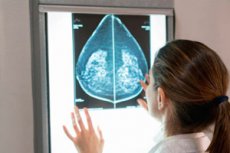New publications
New CAR T-cell therapy shows promise in treating aggressive HER2+ breast cancer
Last reviewed: 02.07.2025

All iLive content is medically reviewed or fact checked to ensure as much factual accuracy as possible.
We have strict sourcing guidelines and only link to reputable media sites, academic research institutions and, whenever possible, medically peer reviewed studies. Note that the numbers in parentheses ([1], [2], etc.) are clickable links to these studies.
If you feel that any of our content is inaccurate, out-of-date, or otherwise questionable, please select it and press Ctrl + Enter.

About a third of HER2-positive (HER2+) tumors express the P95HER2 protein, which is associated with a more aggressive course of breast cancer and a worse prognosis. Researchers from the Vall d'Hebron Oncology Institute (VHIO) and the Cancer Research Program of the Institute of Medical Research of the Hospital del Mar (Barcelona) have created a new chimeric antigen receptor T-cell therapy (CAR-T) that shows a powerful antitumor effect against cells expressing P95HER2.
Key Features of the New CAR-T Therapy
- CAR-T cells were modified to express the anti-P95HER2 receptor and secrete the bispecific antibody TECH2Me, which recognizes tumor cells and activates immune cells in the tumor microenvironment (TME).
- The new approach has demonstrated its efficacy and safety in models created based on tumor samples from patients with HER2+ tumors expressing P95HER2.
Results of preclinical study
The results, published in Nature Communications, showed complete and durable anti-tumor responses to the new CAR-T therapy in a subset of HER2+ tumors. In some cases, tumors disappeared completely, and the mice lived for several months without deterioration in quality of life.
"Developing CAR-T cells for the treatment of solid tumors requires new strategies that enhance the patient's immune response against cancer. We have created a new generation of CAR-T cells with additional therapeutic components for a more effective, long-lasting and safer effect," said Macarena Roman, lead author of the study.
Features and benefits of new CAR-T therapy
- Targeted: The new therapy targets the P95HER2 protein, which is not expressed in normal tissues, reducing the risk of toxicity.
- Additional components: CAR-T cells have been modified to secrete a bispecific antibody, BiTE®, which activates T cells and reduces toxicity to healthy cells with normal HER2 levels.
- Duration of effect: Using a patient-based tumor model, large tumors were completely reduced and the mice's quality of life was maintained.
Next steps and clinical trials
- Based on preclinical results, the approval process for the first Phase 1 clinical trial to evaluate the safety and efficacy of the therapy in patients with HER2+ tumors is being initiated.
- The trial will begin next year and will include 15 patients with HER2-associated tumors who have exhausted all available therapeutic options.
